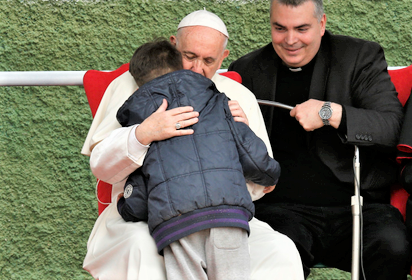
The Benefits of Thankfulness
This blog, as they say in show biz, is partly an encore performance; that is, it’s partly from a Thanksgiving blog I wrote in 2016. (Hey, the blog is free!)
Every year I’m amazed that in a country like ours, which is so wrapped up in the material, so much into “conspicuous consumption,” so enamored of people who amass wealth and fame, we still celebrate a holiday like Thanksgiving.
I’m not sure about the extent to which Americans are conscious of its meaning, but it’s admirable that we have a holiday to recall how much we have to be grateful for.
More Tuned In
Growing up in a different culture, my wife, Amparo, is perhaps more tuned in to Thanksgiving than I am. It’s become a bit ho-hum for me, but she so appreciates the fact that a day is set aside to be grateful. She reminded me that this blog would be published on Thanksgiving and gave me ideas for this post. Here’s a sample.
We teach our children to say, “thank you,” not just to be polite but to learn the importance of gratitude, to be moved by the generosity of God and the people in our lives. To what extent are we adults aware of its importance?
We should be grateful for material things, like roofs over our heads and warm winter beds, but even more for the essentials like faith, family, friends, health and the beauty of nature.
Regarding the gift of faith, for me, it’s a conundrum. I’m grateful for my faith – complete with its doubts and questions – and believe it’s the right one for me. But if it’s a gift, how does God decide who gets it and who doesn’t?
Not Required to Answer
I don’t know, but I’m not required to answer this or all the other questions I have about how God operates. That, too, is part of the gift of faith.
One thing I think is important to remember is that it’s hard to be grateful when we’re in the habit of comparing ourselves to others. It’s like the person who receives a gift of a scarf and says “Thanks, it’s beautiful,” but thinks, “It’s not as nice as the one you gave to your sister.” How can you be grateful when you see things that way?
Though comparisons make us less grateful, being thankful makes us more empathetic to other people’s problems and helps people searching for God to be generous, especially to God’s favorites, the poor.
Another thought. If a prayer of thanksgiving – such as one before the main meal of the day – isn’t among your family traditions, maybe it should be, thinking of at least one thing for which you are grateful besides the food you will eat. No need for embarrassment if you’re among non-believers. I’ve noticed that most people, even unbelievers, don’t seem to mind.
Generous and Grateful
My brother, Dick – a priest in Kansas City who died in 2008 – was a generous and grateful person who several times reminded me that “you can’t outdo the generosity of God.”
I think of him often, and about his “conversion.” As a young priest, and even after a decade or two in the priesthood, I saw him as a bit rigid, somebody who expected everyone to “toe the line.” I saw a gradual change, beginning after the Catholic Church’s Second Vatican Council in the early sixties. He became understanding and compassionate. To be able to change as he did, you have to be open, and grateful.
The Catholic Church to which I belong has a lot of “feast days” to celebrate various believers and events in its history. The adoption of the holiday of Thanksgiving in the U.S. is one case in which secular America came up with a reason to celebrate that, in my view, has outdone many religious feast days.



